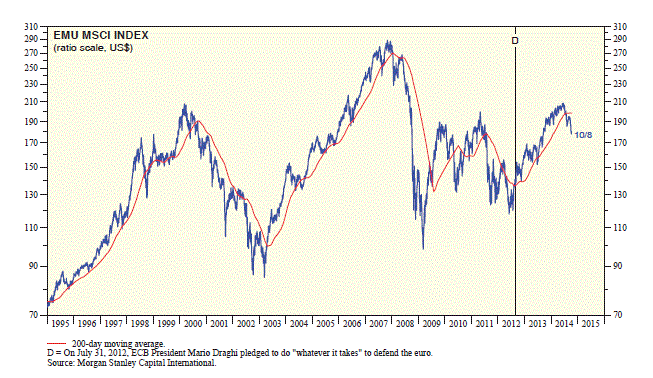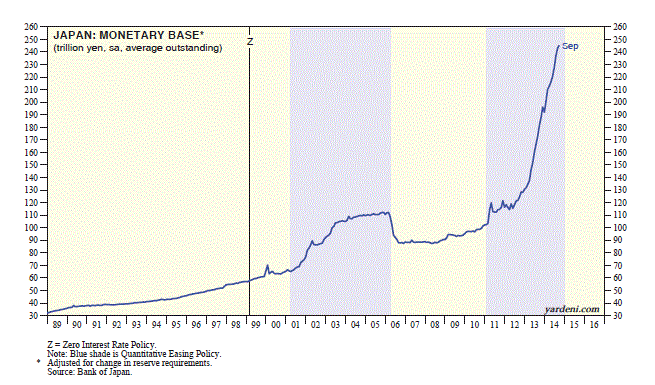
At his 10/2 press conference, ECB President Mario Draghi indicated that monetary policy may not be the solution to what’s ailing the Eurozone economy. Indeed, he ended his prepared remarks by reminding everyone that the main job of the ECB is to maintain price stability. Then he said, “However, in order to strengthen investment activity, job creation and potential growth, other policy areas need to contribute decisively. In particular, the legislation and implementation of structural reforms clearly need to gain momentum in several countries. This applies to product and labor markets as well as to actions to improve the business environment for firms.”
He also stressed that “insufficient progress in structural reforms in euro area countries constitutes a key downward risk to the economic outlook.” In other words, if the next round of monetary easing, including TLTRO liquidity injections and ABS purchases, don’t work, don’t blame him. The EMU MSCI has dropped 4.0% in euros and 3.3% in dollars since the day before Draghi’s press conference.
On Tuesday, after the latest meeting of the BOJ’s policy committee, Gov. Haruhiko Kuroda acknowledged that Japan’s economy remains stubbornly weak despite the sharp increase in the monetary base since the implementation of Abenomics by the bank during April 2013. Extraordinarily, the meeting was halted for 90 minutes when Kuroda was summoned suddenly before parliament for the second time in less than a week. He was grilled about whether the falling yen was hurting rather than helping the economy. He implicitly backed the weakening yen, saying, “When exchange rates move in reflection of financial and economic fundamentals, that is not a minus for the overall economy.”
Today's Morning Briefing: Heavy or Light Weights? (1) Is the Fed coming or going? (2) Stress tests for ECB and BOJ. (3) Is bad economic news bad or good news? (4) Competitive devaluation is an issue. (5) Dudley sees first rate hike in mid-2015, or not. (6) Stocks and bonds. Mars and Venus. (7) Draghi and Kuroda are less confident. (8) IMF’s concern about global growth depresses stocks. (9) FOMC’s concern about global growth boosts stocks. (10) Time to go fishing for the rest of the year, or until mid-term elections.

